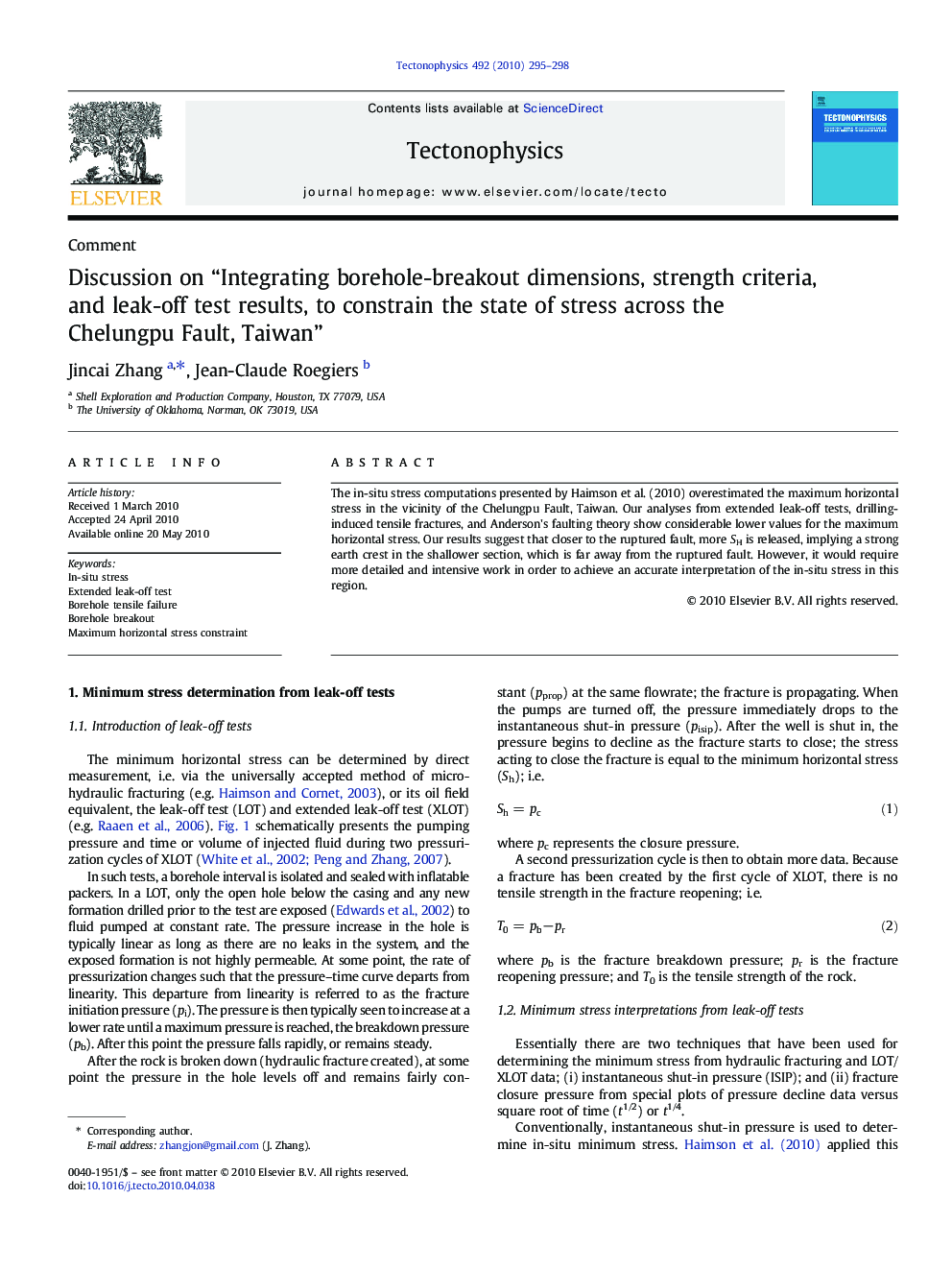| Article ID | Journal | Published Year | Pages | File Type |
|---|---|---|---|---|
| 4693327 | Tectonophysics | 2010 | 4 Pages |
Abstract
The in-situ stress computations presented by Haimson et al. (2010) overestimated the maximum horizontal stress in the vicinity of the Chelungpu Fault, Taiwan. Our analyses from extended leak-off tests, drilling-induced tensile fractures, and Anderson's faulting theory show considerable lower values for the maximum horizontal stress. Our results suggest that closer to the ruptured fault, more SH is released, implying a strong earth crest in the shallower section, which is far away from the ruptured fault. However, it would require more detailed and intensive work in order to achieve an accurate interpretation of the in-situ stress in this region.
Keywords
Related Topics
Physical Sciences and Engineering
Earth and Planetary Sciences
Earth-Surface Processes
Authors
Jincai Zhang, Jean-Claude Roegiers,
